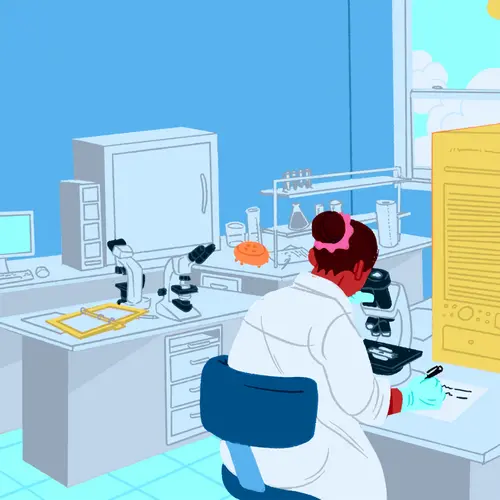Learning that your child has cancer is news that no parent wishes to hear. One helpful thing you can do is to talk to your pediatric oncologist to better understand what may lie ahead for your child and for your family.
Here are four questions that concern some of the major issues about your child’s illness.
What Caused My Child’s Cancer?
It’s common for parents to wonder if they passed on the cancer to their child. But fewer than 1 in 10 cancer cases are thought to be caused this way.
Doctors don’t know what causes most childhood cancers. A big majority of cancers in adults is linked to age and a lifetime of environmental or DNA damage. But pediatric cancers are rare. Kids under 15 get less than 1% of all cancers diagnosed each year.
If one of your children gets cancer, it doesn’t affect the chances that your other children will have it, too. But if you’re concerned, ask your doctor about genetic counseling.
Where Will My Child Be Treated?
Your child likely will be referred to a university or children’s hospital that belongs to the Children’s Oncology Group. This is a worldwide network of cancer experts and researchers who focus solely on treating kids and adolescents.
Most of these pediatric cancer centers have a full range of specialists to support the needs of young people and their whole family. They include psychologists, social workers, nutritionists, therapists, and educators. The flip side is that you may live far from one of these specialty pediatric cancer hospitals.
Older teens and even young adults with childhood cancer types may have the option to seek care at an adult cancer center. That might be a better choice if traveling far for treatments is difficult because of work, school, or family obligations.
What Treatment Will My Child Have?
The type of your child’s cancer and its seriousness will largely dictate what treatment may be best. Kids can respond differently to cancer therapy than adults do. For example, chemotherapy usually works better in children. But radiation can cause more side effects than they do in adults.
Often, doctors combine two or more therapies. The most common treatments are:
- Surgery
- Radiation
- Chemotherapy
- High-dose chemo followed by stem cell transplant
- Targeted therapy
- Immunotherapy
- Clinical trials
Side effects from treatment are hard to predict because they vary so much from child to child. The same child may also have different side effects to a treatment over time. The medical team can help you and your child prepare for side effects of each treatment and help manage them if they happen.
What Can We Expect for My Child’s Future?
Children and adolescents generally have excellent outcomes. About 84% of them are alive 5 years after their diagnosis. Many live a normal life span. But survival rates differ depending on your child’s cancer type and other things. Treatments can leave long-term side effects. Some children will need careful follow-up care for many years.
Some late effects of cancer treatment include:
- Heart or lung problems due to chemotherapy or radiation
- Slowed or delayed growth and development
- Changes in sexual development and ability to have children later in life
- Learning problems
- Increased risk of other cancers later in life
Once your child finishes treatments, they’ll follow regular tests and checkups. Over time, as the chance that your child’s cancer might return goes down, they may see the doctor less often.
Prepare for Your Visit
Make the most of your conversation with your pediatric oncologist. Read about your child’s cancer type ahead of time. That may help you understand your doctor better. Many common childhood cancers affect the blood or start in the brain or the nervous system.
Bring your list of questions to the appointment to help you remember. It’s OK to ask your doctor to repeat any information or to explain it in a new way. You can also ask them to spell unfamiliar words.

